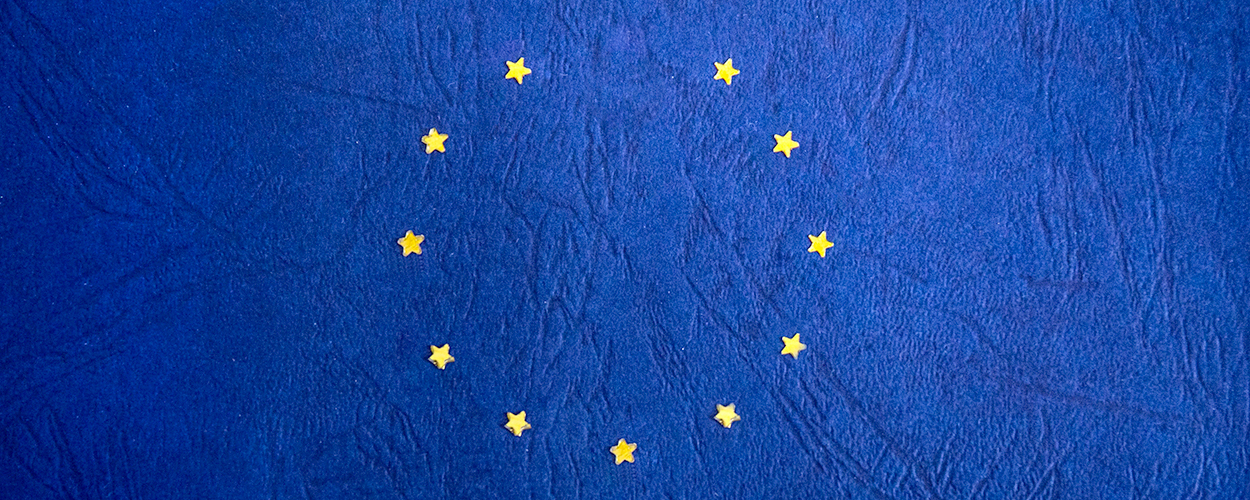This website uses cookies so that we can provide you with the best user experience possible. Cookie information is stored in your browser and performs functions such as recognising you when you return to our website and helping our team to understand which sections of the website you find most interesting and useful.
Business News Legal Live Business
UK government blames EU for new bureaucratic barriers faced by British artists touring Europe
By Chris Cooke | Published on Thursday 31 December 2020

The UK government has claimed that it tried to include measures in its big Brexit trade deal that would have allowed British performers to tour the European Union without any new bureaucratic barriers being put in place, but that EU officials rejected those proposals.
The music industry has been quick to criticise the last minute UK/EU trade deal that was agreed last week, and which goes into force tomorrow, because of what it means for artists and musicians touring Europe.
The deal does not include specific provisions that would ensure visa free touring for British artists across the EU, and EU artists across the UK.
Which means that – whereas British artists, musicians and tour crews have previously been able to work across the European Union without worrying about visas and work permits – moving forward the rules will be different for each EU country.
The rules in some EU countries will mean there remains little bureaucracy for artists touring there, but in others visas or work permits may be required, adding extra costs and extra admin tasks to tours that may already be operating on a break-even basis at best.
Throughout the Brexit process, the music industry has been calling for some kind of creative passport scheme that would ensure there would be no new bureaucracy for touring performers once the UK was outside the EU.
And such a scheme has enjoyed support in the political community, including from some leading Brexiteers.
Noting all that, Horace Trubridge, General Secretary of the Musicians’ Union, told reporters earlier this week: “Over the past few years we have told the government in every possible way that a Brexit deal needs to make provisions for touring musicians”.
“Hundreds of MPs have spoken on behalf of our members” and “ministers have assured us over and over again that they will ensure that touring musicians will not be subject to extra cost or admin post-Brexit”, he went on. “And yet we now see that this deal does not address any of our concerns”.
Speaking to the BBC, he added: “Our understanding from analysis of the trade agreement is that the main barriers for musicians in the short term will be work permits, which could vary from territory to territory, and costly carnets [permits] for movement of instruments and equipment”.
These new requirements will have a significant impact for musicians, he concluded. “Given the massive impact of the COVID-19 crisis on the UK music industry, this is another devastating blow”.
Echoing Trubridge’s criticism, David Martin of the Featured Artists Coalition has told NME that being subject to each EU country’s different rules is not only problematic because of the potential extra costs, but also because it means artists navigating numerous different sets of rules, any of which could be changed at any time.
“Add to this the administrative and financial burden of touring with any equipment and we have the none of what we were promised”, he added, “this is not a reduction of red tape, a removal of bureaucracy and the UK holding all of the cards, it’s the opposite – we will have lost so much”.
He went on: “The key figures at the heart of this government have spent half a decade talking up Brexit, extolling its virtues and hailing the benefits of leaving the EU in ‘making Britain global’”.
“We’re not very global if our artists and musicians can’t tour easily across our closest and most culturally aligned, neighbouring countries. It is time for the architects of Brexit to put their money where their mouths are and prove that Brexit can be a success and not a catastrophe for our industry”.
Facing increased criticism on this point online – and also during yesterday’s Parliamentary debate on the Brexit deal – the government has basically blamed the new bureaucracy touring artists face on the EU.
Although not commenting on the proposal for a bespoke reciprocal visa free scheme specifically for performers, a government spokesperson said that the UK had wanted a wider reciprocal deal for all business travellers, which would have included those travelling around the EU to perform.
Speaking to the BBC, the spokesperson said: “The UK pushed for a more ambitious agreement with the EU on the temporary movement of business travellers, which would have covered musicians and others, but our proposals were rejected by the EU”.
Despite those claims, UK ministers can expect proactive lobbying on this issue from the music industry and wider creative sector in the weeks ahead, with a petition on the Parliament website having now gained sufficient traction to force a formal government response and probably a specific parliamentary debate too.
Though, with Brexit done and the UK no longer having any control or direct influence over the visa arrangements of the EU’s member states, the British music industry will likely need its counterparts across Europe to also campaign on this point to have any chance of getting a decent creative passport scheme set up.





